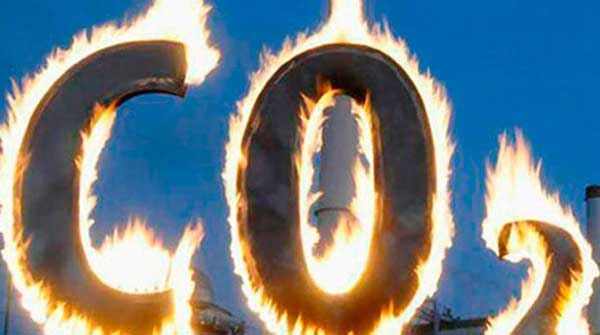Trudeau is targeting Alberta with his emissions cap while sparing other polluting industries
 The Trudeau government’s recent announcement regarding the implementation of Net Zero measures to cap oil and gas emissions has sparked significant debate and scrutiny. The plan sets a milestone for 2030, with further milestones anticipated until 2050. However, this decision raises several pressing questions and concerns that warrant careful examination.
The Trudeau government’s recent announcement regarding the implementation of Net Zero measures to cap oil and gas emissions has sparked significant debate and scrutiny. The plan sets a milestone for 2030, with further milestones anticipated until 2050. However, this decision raises several pressing questions and concerns that warrant careful examination.
Among them:
Why is the Trudeau government targeting Alberta? The decision to impose production caps specifically on Alberta’s oil and gas industry begs the question: why Alberta? Given the province’s substantial contribution to Canada’s GDP, federal finances, and Transfer Payments to other provinces, what justification exists for singling out Alberta for such stringent measures?
Why have other industries been spared? While the oil and gas sector faces production caps, no such measures have been announced for other heavy-emitting industries. This lack of consistency raises concerns about fairness and economic repercussions. Why has Alberta been uniquely targeted, and what considerations have been made regarding potential economic impacts?
How feasible are the milestone goals? The proposed plan outlines a series of gradual milestone goals for emissions reduction, culminating in a continuous decline until 2050. However, is this approach realistic? Transitioning to a new energy infrastructure involves monumental challenges, including planning, material sourcing, construction, and the commissioning of giant projects. Can these milestones be achieved within the proposed timelines, and what are the associated time, cost, and energy requirements? Where will we get the extra energy required if we shut down the oil sands?
Are the government’s hand-picked advisory groups exerting undue influence? The Minister of Environment, Steven Guilbeault, relies on various advisory groups for guidance on climate policies. However, many of these groups comprise non-elected and non-accountable individuals, primarily from NGOs and government-funded charities. What qualifies them to advise on complex energy policies?
How is NGO influence affecting policy development? Evidence suggests NGOs’ significant influence on energy policy development, particularly in advocating for renewable energy options. How transparent and balanced are these policy-making processes, and to what extent do they consider alternative energy technologies beyond renewables? Why does Canada need six NGO-influenced groups such as (ECCC, CCI, NZAB, NZAC, MAC and CEDAC) to offer the government advice? Shouldn’t the quality of advice be preferred over quantity?
What can we learn from past renewable energy initiatives? Past initiatives in provinces like Ontario and Alberta have faced criticism for their exclusive focus on renewables, resulting in costly ventures that were later cancelled or paused. What lessons have been learned from these experiences, and how are they being applied to current federal policy decisions?
Is Canada’s approach aligning with global trends and realities? Global trends show a massive resurgence in coal-fired electricity production and delays in Net Zero implementation across most countries; how does Canada’s approach align with these developments? Are adjustments needed to ensure Canada’s climate policies remain effective and relevant in the face of evolving global realities? These questions underscore the need to thoroughly scrutinize and evaluate Canada’s Net Zero measures. Failure to address these concerns risks undermining the effectiveness and credibility of Canada’s climate policies. The scientific proof and potential costs of Net Zero delusion are emerging worldwide, bringing Canada increasingly out of synch with the world.
What actions is the Trudeau government taking prior to tabling Net Zero policies? When it comes to energy, any policy error implemented now will not only need several years to correct and change course but also raise the spectre of life and death for people if the grid were to collapse. As a result, before tabling Net Zero policies, the government must demonstrate:
1. full transparency of the policy-making process
2. that all available energy technologies have been considered, with valid justifications for inclusions or exclusions
3. that a progress monitoring and goals achieved system is in place, and
4. that all non-elected and non-accountable NGOs, marketers, lobbyists, and charities have been excluded from the offices of the decision-making Minister.
Why is the Trudeau government relying on the same lobbyists who failed before? The energy lobbying failures started with the McGuinty/Wynne governments in Ontario when several contracts for renewables had to be cancelled. The same lobbyists resurfaced in Alberta during the NDP era, which resulted in another renewables boondoggle that ended last summer when the Smith imposed a moratorium on new construction for renewables. Interestingly, the same actors have resurfaced again, spread among the various advisory committees in Guilbeault’s office. Isn’t it past time to clean house?
When these questions are considered together, one can justifiably believe there is a set of “marching orders” for guiding advisors and NGOs, and an extreme lack of due diligence by the federal and provincial politicians involved.
Cosmos Voutsinos is a retired engineer who has published multiple scientific papers that have garnered a total of 96 citations. He earned his Bachelor of Applied Science (BASc) at the University of Waterloo and his Master of Engineering (M.Eng) degree from MacMaster.
For interview requests, click here.
The opinions expressed by our columnists and contributors are theirs alone and do not inherently or expressly reflect the views of our publication.
© Troy Media
Troy Media is an editorial content provider to media outlets and its own hosted community news outlets across Canada.


